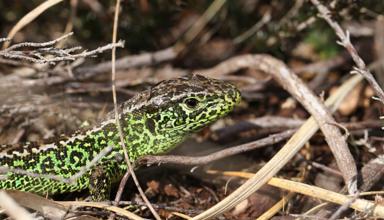11 September 2013
In June 2013 the Member States and Members of Parliament of the European Union reached a potentially historic agreement on the reform of the Common Fisheries Policy. This is the policy that sets out the rules and regulations governing all fishing within European Union waters that takes place outside 12 nautical miles of the coast. Under the Policy each Member State receives what’s known as quota for different species of fish. This is the amount of fish that their fishing fleet are allowed to catch. Once this quota limit is reached within any particular Member State then its boats must stop catching or landing that fish. Over the last decade the Policy has been criticised by both civil society groups and European governments for its failure to tackle unsustainable fishing levels and the collapse of some fish stocks within the EU. Although the details of the financial mechanism that will support delivery of this policy- the European Maritime and Fisheries Fund- have yet to be agreed stakeholders have welcome the proposals to secure more sustainable fisheries included within the agreement on the main reform. Some of the key proposals include:
- The requirement that all fisheries will have to be fished at levels which are sustainable and allow fish stocks to recover by 2020;
- The requirement for all fisheries to have a management plan based on an ecosystem approach;
- The proposals to eliminate discarding of unwanted fish. That is the practice of returning dead fish to the sea instead of landing them because a fisher has already met the quota they have been allocated for that fish.
- Requirements for Member States to address overcapacity in their fishing fleet. That is to require them to ensure that the number of boats and fishing businesses don’t exceed the amount of fishing quota a country has.
- Proposals to improve data collection and monitoring.
In Wales the majority of our fishing fleet is small scale and coastal in nature. One of the biggest issues identified for the Welsh fleet has been the impacts on the Welsh marine environment of large fishing boats from other Member States fishing within Welsh waters. In the past the Welsh Government has had few tools to tackle the actions of these boats but the Welsh Government has stated that it hopes new proposals for more regional management of the Common Fisheries Policy may allow it to develop agreements with other Member States to mitigate some of this activity. The new policy requires Member States to allocate the quota they receive on the basis of transparent and objective environmental and social criteria. It also encourages Member States to provide preferential access to fisheries quota for small scale coastal fleets and to boats using fishing techniques with reduced environmental impact. This may strengthen the Welsh Government’s ability to negotiate a larger share of the UK fisheries quota for the Welsh fleet. Traditionally a large proportion of the UK fisheries quota has gone to large scale commercial operators with boats over 12 meters in length. The new requirements will come into force from January 2014 and the Welsh Government will be responsible for their implementation within Welsh waters which reach out to the UK’s maritime border with Ireland. The Minister for Natural Resources and Food, Alun Davies, has stated that the Welsh Government will publish a new marine and fisheries strategy for Wales by November 2013. Article written by Nia Seaton






